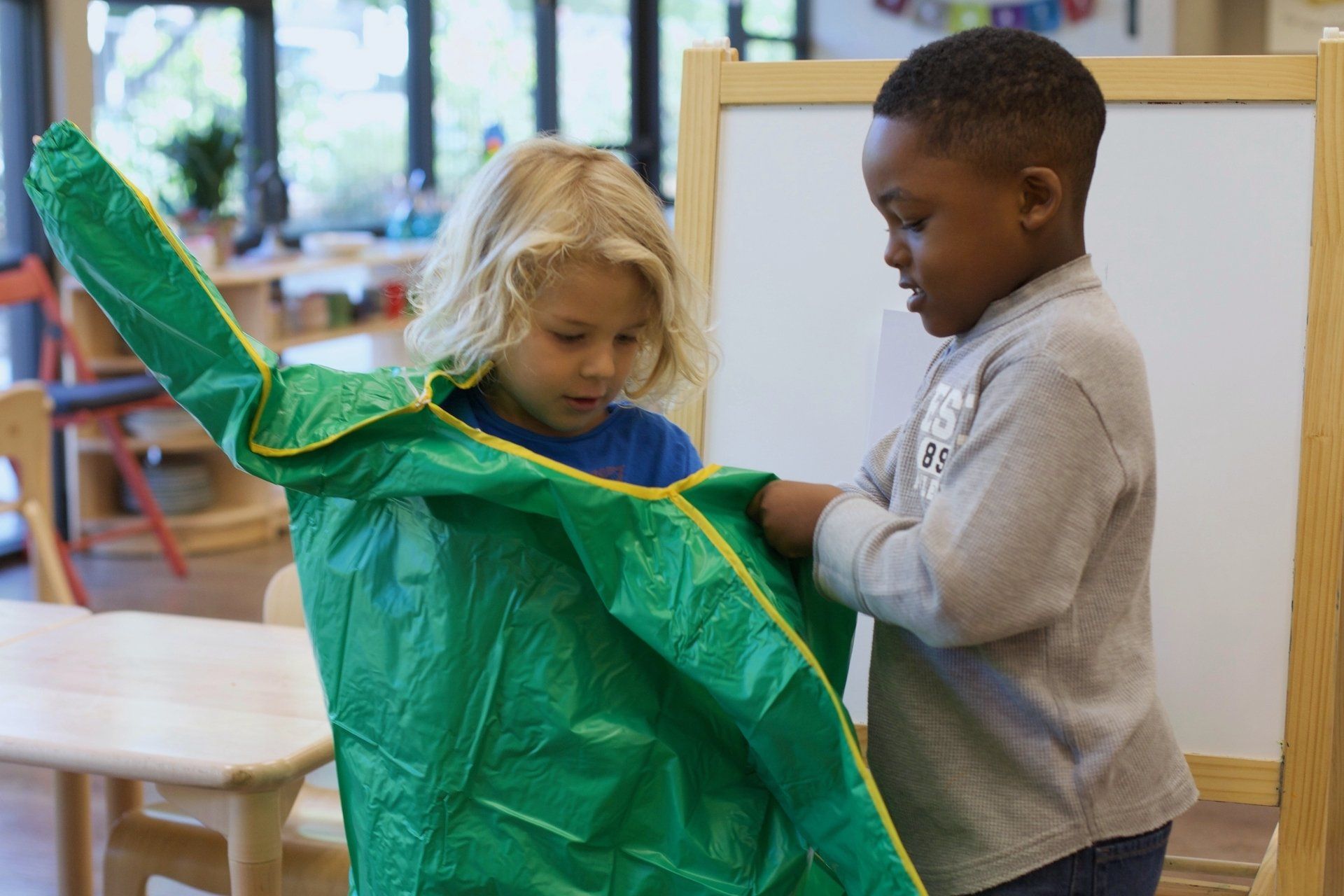5 Ways to Live a Montessori Life
The more we learn about Montessori, the more it tends to seep its way into all aspects of our lives. We find ourselves seeing the world just a little bit differently, and the changes are so positive! This week we thought we would share five simple ways to live a life guided by Montessori values. (You may be surprised to find how closely this aligns to what you already do!)
The quotes throughout this article are those of Dr. Montessori herself.
1. Prepare Yourself
“The real preparation for education is the study of one’s self. The training of the teacher is something far more than the learning of ideas. It includes the training of character; it is a preparation of the spirit.”
Montessori believed that before a teacher could be effective, they needed to rid themselves of preconceived ideas, take a genuine interest in studying the world and the universe, and look inward to ignite change. Since the parents are a child’s first and most influential teachers, this idea extends beyond the classroom. Some helpful questions we might all revisit from time to time:
-
- Do we let our children see us as readers? Do they know we read not just out of necessity, but for pleasure as well?
- Do we approach elements of parenting and learning in certain ways because it’s the way we experienced them when we were younger, or do we take the time to consider other methods and ideas?
- Have we taken the time to put on our figurative airplane oxygen mask? Are we physically, mentally, and emotionally prepared to show up for others (including our children)?
- Do we live with a sense of curiosity and wonder? It can be easy to fall into ruts with work and life, but are we remembering to stop and really appreciate the world around us?
2. Prepare the Environment
“The environment must be rich in motives which lend interest to activity and invite the child to conduct his own experiences.”
“Plainly, the environment must be a living one, directed by a higher intelligence, arranged by an adult who is prepared for his mission.”
You already know that Montessori guides put great effort into creating beautiful, functional learning environments that foster growth and independence. You have likely already tried to implement little tweaks to your home environment. It may not come as a surprise to learn that this is an ever-evolving process. Your home should function to serve the needs of everyone who shares it. Whether your home is any combination of infants, toddlers, children, teenagers, adults, and seniors, everyone has different interests and needs. Our advice? Start to notice how your family interacts with the home environment and what can be done to ensure everyone can be as independent as it is possible for them to be. Make changes as the people change.
Consider:
-
- Access to food and drink
- Access to personal hygiene items
- Furniture that is suited to various individuals
- Lighting that allows for different activities
- Organization, minimalism, and aesthetic
3. Understand Human Development
“Education should not limit itself to seeking new methods for a mostly arid transmission of knowledge: its aim must be to give the necessary aid to human development… If ‘the formation of man’ becomes the basis of education, then the coordination of all schools from infancy to maturity, from nursery to university, arises as a first necessity: for man is a unity, an individuality that passes through interdependent phases of development. Each preceding phase prepares the one that follows, forms its base, nurtures the energies that urge towards the succeeding period of life.”
Okay, so this is a tall order. What we can say is empathy goes a long way. Sometimes we stop and remind ourselves that every child is exactly the way they are for a reason. This applies to pretty much every situation and goes for adults as well. Our biology and life experiences shape our behavior, and each stage of life builds a foundation for the next. Every skill learned helps prepare us for another. Every relationship we form develops our social understanding of the world. Want to learn more about children’s development? Read about Montessori’s Planes of Development.
4. Consider a Global Perspective
“This is education, understood as a help to life; an education from birth, which feeds a peaceful revolution and unites all in a common aim, attracting them as to a single center. Mothers, fathers, politicians: all must combine in their respect and help for this delicate work of formation, which the little child carries on in the depth of a profound psychological mystery, under the tutelage of an inner guide. This is the bright new hope for mankind.”
“The land is where our roots are. The children must be taught to feel and live in harmony with the Earth.”
As Montessorians, our teaching is based on the idea that we are all interconnected. And by we all, we mean not just humans, but all living things across the planet, as well as the environment itself. If we consider this perspective it’s easy to see how critical it is for us to all be united. To raise ourselves up as a species we must join together to work toward common goals, and we believe that children are the best inspiration to do so.
Each human being is unique, but we are so much more when we think about our connections to each other and to the Earth.
5. Truly Embrace Individuality
“Free choice is one of the highest of all the mental processes.”
“No adult can bear a child’s burden or grow up in his stead.”
“It is not in human nature for all men to tread the same path of development, as animals do of a single species.”
When our children are born they rely so heavily on us for every aspect of their care. Our instincts to protect them are fiercely powerful, and we all want them to have every possible advantage in life. This is a good thing; children need people who are always in their corner, ready to support them no matter what.
But…
We must learn to master the delicate balance of slowly guiding them toward independence. We want our children to be able to do things for themselves, and they are capable of so much. We must also remember to let them be who they are meant to be,
not who we imagine them to be. The only person who can determine the path of one’s life is that person themselves. As parents and teachers, our most important task is to support the journey.
As we often tell our students, it all boils down to three simple guiding principles: care for yourself, care for the environment, and care for others. Here’s to a lifetime of Montessori!
You might also like



